In 2013, MCSI’s spring event series explored the City.
One definition of “city” might be “a place of such dense inhabitation that it (i) cannot feed itself and (ii) produces more waste than it is healthy for humans to live with.” Yet, even while there is some truth to this definition, there are also good reasons to think that humanity’s only sustainable future involves further “densification,” that is, further urbanization. This lecture and event series looks at “cities” in terms of issues of human sustainability, but equally in terms of social stratification, democratic public spheres, cosmopolitanism, and the arts.
Examining THE CITY: Issues of Sustainability, Social Stratification, Democratic Public Spheres, Privatization, Cosmopolitanism and the Arts
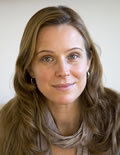 February 5, 2013
February 5, 2013
Anne Rademacher (New York University)
“Urban Ecologies in a Time of Revolution: River Restoration as Political Transformation in Nepal’s Capital City”
Anne Rademacher’s research explores the political and cultural dimensions of sustainability in cities. Through ethnographic analyses of urban environmental change, Rademacher examines how place-based affinities, contested histories and ideologies of belonging develop in struggles over the form, content and quality of urban environments. Her central interest is urban ecology—its scientific contours, its application across cultural and political contexts, and its interconnection with social change. She is the author of Reigning the River: Urban Ecologies and Political Transformation in Kathmandu and is a professor of both social and cultural analysis and environmental studies at New York University. She received her PhD in anthropology and environmental studies from Yale University.
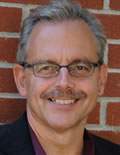 February 12, 2013
February 12, 2013
Manuel Pastor (University of Southern California)
“Public or Perish? Environmental Justice, Community-Engaged Research and New Collaborations For Social Change”
Manuel Pastor is the director of the Program for Environmental and Regional Equity at the University of Southern California. He holds an economics PhD from the University of Massachusetts, Amherst, and has received fellowships from the Guggenheim and Kellogg foundations and grants from the Rockefeller Foundation, the Ford Foundation, the National Science Foundation, the California Environmental Protection Agency, and many other organizations. In recent years, his research has focused on the economic, environmental and social conditions facing low-income urban communities in the US, resulting in articles published in Economic Development Quarterly, Journal of Economic Issues, Urban Geography and elsewhere. His most recent book, Uncommon Common Ground: Race and America’s Future (co-authored with Angela Glover Blackwell and Stewart Kwoh), offers a new set of strategies for both talking about race and achieving racial equity.
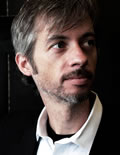 February 19, 2013
February 19, 2013
Benjamin Flowers (Georgia Institute of Technology)
“Tyrants and Temples of Culture: Tales from the Recent Architectural Past”
Benjamin Flowers examines architecture as a social activity situated within the intersecting spheres of politics, culture and economy. Looking in particular at skyscrapers and stadiums, he focuses on the ways these structures are constructed, the ends to which they are used and public reactions to them. His is the author of Skyscraper: The Politics and Power of Building New York City in the Twentieth Century and a professor of architecture at the Georgia Institute of Technology College of Architecture. Flowers is currently completing a book on stadia around the world.
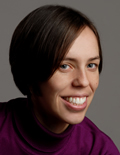 February 26, 2013
February 26, 2013
Jenna Burrell (University of California, Berkeley)
“Invisible Users: Youth in the Internet Cafés of Urban Ghana”
Jenna Burrell’s research focuses on the large-scale diffusion of digital technologies in sub-Saharan Africa. She is a professor in the School of Information at UC Berkeley and the author of Invisible Users: Youth in Internet Cafés in Urban Ghana. She holds a Ph.D. in sociology from the London School of Economics and a B.A. in computer science from Cornell University. Before pursuing her Ph.D. she was an Application Concept Developer in the People and Practices Research Group at Intel Corporation.
 March 26, 2013
March 26, 2013
Roger Bonair-Agard (Founder and Artistic Director, louderARTS)
“Blooded and Sweet: How Violence Defines Art of Color – The Magic of Being ‘There’
Roger Bonair-Agard was a member of the 1997 Nuyorican Poets Cafe Poetry Slam team and later coached the 1998 Nuyorican Poets Cafe Poetry Slam team, which went on to win the National Poetry Slam Championship that year in Austin, TX. He then co-founded the louderARTS Project, and in 1999, won the individual competition at the National Poetry Slam. He is currently artistic director for louderARTS, and has also been adjunct professor in the Creative Writing Department at Fordham University. Over the past decade he has worked with the youth at Urban Word in New York City, at Volume in Ann Arbor and with poetry youth organizations in Seattle and San Francisco. He also teaches poetry at the Cook County Temporary Juvenile Detention Center in Chicago, IL. His published works include Bury My Clothes (2013), Gully (2010) and Tarnish and Masquerade (2006); and he has produced several CDs, including List in a Valley of Bone: New and Selected Poem Recordings (2009).
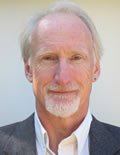 April 2, 2013
April 2, 2013
Stephen Wheeler (University of California, Davis)
“The Ecological City”
Stephen Wheeler teaches urban design and sustainable development at University of California, Davis. He is the author of Climate Change and Social Ecology: A New Perspective on the Climate Challenge and Planning for Sustainability: Towards Livable, Equitable, and Ecological Communities. He is also the co-editor of The Sustainable Urban Development Reader. Wheeler has served as transportation commissioner for the City of Berkeley and as a lobbyist for environmental organizations in Washington, DC. His guidebook, Smart Infill, published by Greenbelt Alliance, won the 2003 Education Project Award from the California Chapter of the American Planning Association. His other awards include the Chicago Institute of Architecture and Urbanism Award, the Munsell Memorial Award and first place in the Infill Category of the Housing the Next Ten Million competition sponsored by the Great Valley Center in California (with Michael Larice). His current research focuses on 1) climate change planning for mitigation (reducing greenhouse gas emissions) and adaptation; 2) the evolution of built landscapes in metropolitan regions; and 3) theory and practice of sustainable development.
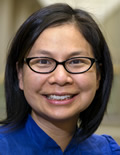 April 9, 2013
April 9, 2013
Karen Ho (University of Minnesota)
“Wall Street, American Finance Capital, and the Global City”
Karen Ho is the author of Liquidated: An Ethnography of Wall Street and a professor of anthropology at the University of Minnesota. In reviewing Liquidated in the Financial Times, Gillian Tett wrote that Ho’s “ethnographic analysis has produced a fascinating” and “refreshingly novel” account of the financial sector of contemporary global capitalism. Ho’s other publications include “Finance” in the Encyclopedia of Social and Cultural Anthropology and “Disciplining Investment Bankers, Disciplining the Economy: Wall Street’s Institutional Culture of Crisis and the Downsizing of American Corporations” in the American Anthropologist.
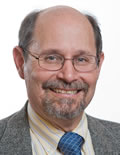 April 16, 2013
April 16, 2013
Michael Cousineau (University of Southern California, Keck School of Medicine)
“Obamacare: Challenges and Opportunities for the Health Care Safety Net and the Urban Poor”
Dr. Michael Cousineau’s work focuses on policy issues that impact access to primary and preventive health care, particularly for the poor and homeless. He is currently funded by the California Endowment to evaluate health programs for the poor and he was the principal investigator for the Los Angeles Health Survey for the LA County Department of Health Services. He is a professor of preventive medicine at the USC Keck School of Medicine and of public health at USC Price School of Public Policy. His numerous articles have appeared in such publications as the Journal of Health Care for the Poor and Underserved, Public Health Reports, Health Care Financing Review, and American Behavioral Scientist.
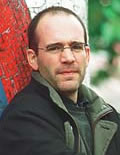 April 23, 2013
April 23, 2013
Javier Auyero (University of Texas at Austin)
“The Uses of Violence in Urban Latin America”
Javier Auyero is the Joe R. and Teresa Lozano Long Professor in Latin American Sociology at the University of Texas at Austin. His books include Patients of the State: the Politics of Waiting in Argentina and Flammable: Environmental Suffering in an Argentine Shantytown (with Debora Swistun), which won both the Charles Tilly Best Book Award and the Robert Park Best Book Award from the American Sociological Association in 2010. His research examines issues of violence, environmental suffering and bureaucracy in urban Latin America.
 April 27 (Saturday), 2013
April 27 (Saturday), 2013
Los Angeles Urban Rangers Field Trip
“Public Access 101: Downtown L.A.”
April 30, 2013
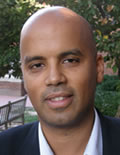 Suleiman Osman (George Washington University).
Suleiman Osman (George Washington University).
“Searching for the Authentic City: Gentrification in the United States and Europe”
Suleiman Osman specializes in U.S. urban history, the built environment, and the study of race and ethnicity. His book, Inventing Brownstone Brooklyn: Gentrification and the Search for Authenticity, explores the relationship between New York’s physical and symbolic cityscapes. Tracing the efforts of a new middle class to reinhabit and restore aging Victorian neighborhoods, Prof. Osman examines how Brooklyn’s declining commercial and industrial landscapes were recast as postindustrial sites of anti-bureaucratic authenticity. He is now pursuing a broader project that looks at 1970’s urban politics and culture. His essay, “The Decade of the Neighborhood,” in Julian Zelizer and Bruce Schulman’s Rightward Bound: Making America Conservative in the 1970s, offers an analysis of the “neighborhood movement” of the 1970s and traces the widespread and eclectic revolts against urban growth politics in New York, Boston, and other cities in the 1970s. He is a professor in the department of American Studies at George Washington University.